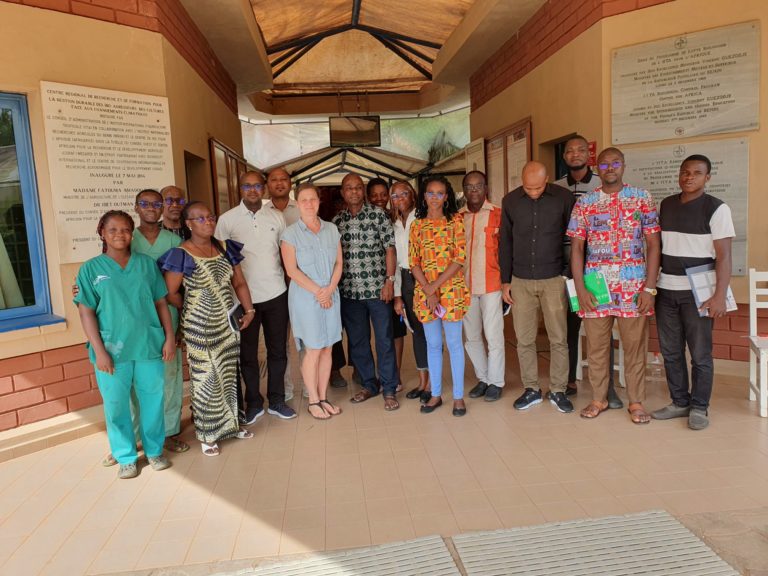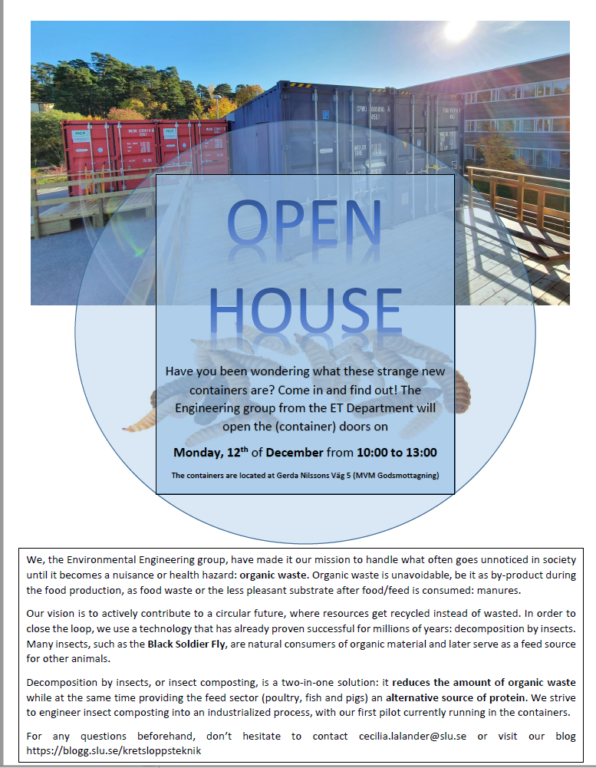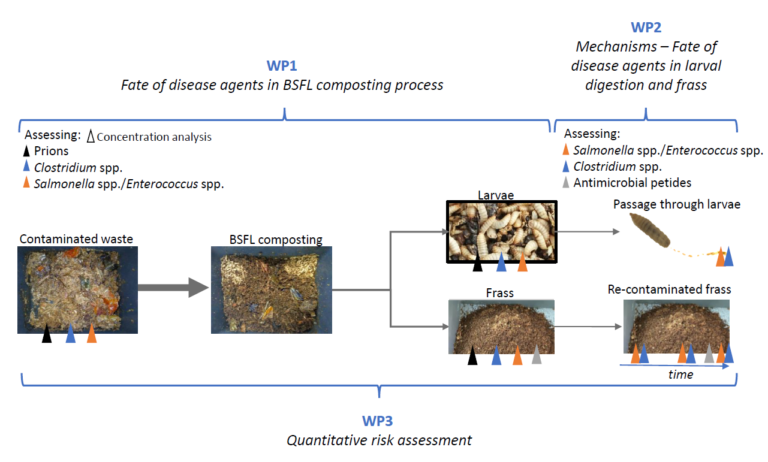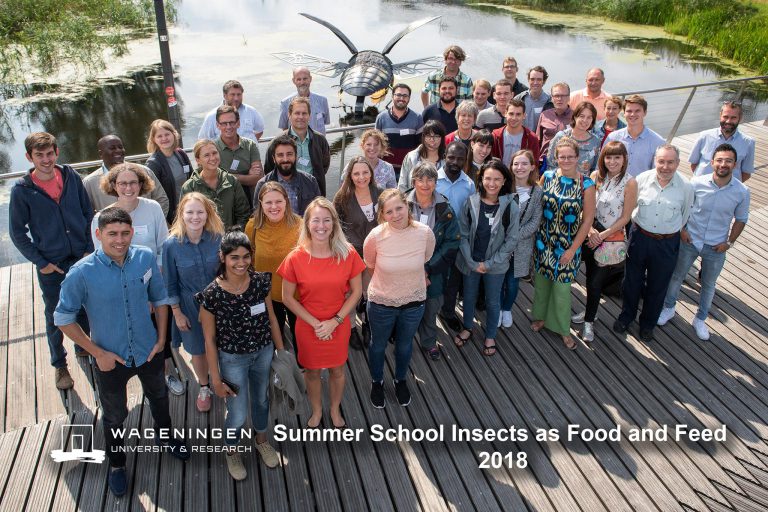Viktoria just returned from Benin which she visited in October to work together with colleagues from IITA at completing the goals of workpackage I + III in our VR funded project ‘Insect farming for feed production and organic waste management in Benin‘. Together they investigated and sampled waste streams from the south and the north of Benin and worked on improving the Black Soldier Fly colony at IITA, to secure a stable and high production of Black Soldier Fly larvae for future waste treatments. The visit was ended with a fruitful final discussion, where the gained knowledge and experience was shared with the rest of the work groups, both at SLU and IITA.

IITA, the International Institute of Tropical Agriculture, is a non-profit institution that generates agricultural innovations to meet Africa’s most pressing challenges of hunger, malnutrition, poverty, and natural resource degradation. Working with various partners across sub-Saharan Africa, they aim to improve livelihoods, enhance food and nutrition security while increasing employment, and preserve natural resources.
About the project:
The project is funded by VR (Vetenskapsrådet) and the objective is for Black Soldier Fly Farming to contribute to solving socio-economic and environmental issues in Benin by reducing the adverse impact of inadequate waste management, while at the same time improving agricultural productivity with locally sourced products.




